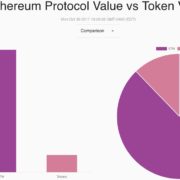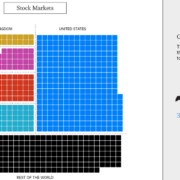Sell Your Data. Earn Passive Income. What Could Go Wrong?
Source: https://slate.com
Your data is not property. It’s a piece of who you are.
The Facebooks and Googles of the world are getting rich off your data. Market researchers at PwC estimate that in 2018, companies that collect personal data to use for targeted advertising brought in $178 billion in revenue. Data brokers last year earned a further $21 billion. And these numbers are only trending up. By 2025, PwC expects the global data economy to be worth more than $400 billion.
So it’s about time we get in on the action, right?
Enter the so-called data exchange, a new breed of tech startup promising to cut us in on a share of the vast wealth being created by the sale of our personal data. Billing themselves as disruptors of a top-heavy and exploitative industry, these companies promise to build platforms where we can collect, store, and ultimately sell our browser histories, Fitbit analytics, bank statements, Instagram posts, Spotify habits, and all the other data points that drop from us like skin cells and hair follicles as we go about our lives.
Each startup in this nascent economy has staked out a niche. Streamr wants to let you sell data in real time—every lane change in your Tesla and adjustment to your smart thermostat can be added to the aggregated data sets it will offer to corporations on a subscription basis. A company called UBDI (it stands for Universal Basic Data Income) brings analytics in house, selling only the insights it can glean from its users’ data rather than the data itself. And Ocean Protocol is on a mission to sell your data to A.I. companies, “equalizing access to data for all,” as its website announces, so megacorporations like IBM and Microsoft won’t be the only kinds of companies with access to massive stockpiles of our personal information.
In return, you’ll get some crypto tokens that might be worth something one day if enough of us decide to sell access to our lives. That’s because the data exchange market doesn’t actually exist yet. Though a number of these companies have already launched, data is only valuable in aggregate, so these startups will need to attract users—and lots of them–before they can start compensating people in any kind of meaningful way. Until then, all we have are the hopeful predictions of evangelizing entrepreneurs like Roger Haenni, the co-founder of a startup called Datum, who vaguely estimates our data might be worth about $2,000 a year, though others have put the number much lower. Not to mention that many potential buyers in this market are currently awash in free data and have no trouble recruiting volunteers to give up intimate personal information for very little, as Facebook recently proved by offering e–gift cards of $20 per month to young people in exchange for permission to monitor all the data passing through their phones.






Hinterlasse einen Kommentar
An der Diskussion beteiligen?Hinterlasse uns deinen Kommentar!